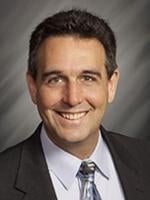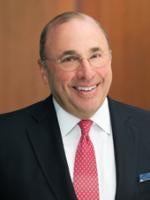On Feb. 25, the U.S. Supreme Court ruled that state professional licensing boards comprised of professionals, which long had presumed they enjoyed immunity to claims under the antitrust laws, are in fact not protected by the “state action doctrine” of Parker v. Brown. The decision should be considered by all professionals who serve as members of state licensing and professional regulatory boards.
In a 6-3 ruling and opinion written by Justice Anthony Kennedy, the Court upheld the U.S. Court of Appeals for the Fourth Circuit. That court had affirmed an administrative law judge who sided with the Federal Trade Commission against the North Carolina State Board of Dental Examiners after the board issued cease and desist letters to non-dentists who provided teeth whitening services. The case raised the issue of whether such boards, which are actual state agencies, are wholly exempt from the antitrust laws under the Parker doctrine, which was established in 1943, or whether such boards, when they are comprised of active market participants (i.e., practicing dentists) are subject to the “Midcal” test. That test, established in the case of California Retail Liquor Dealers Assn. v. Midcal Aluminum, required that defendants carrying out a state policy prove they were “actively supervised” by a state pursuant to a “clearly articulated and affirmatively expressed” state policy before availing themselves of the Parker doctrine defense.
In the North Carolina case, the state did not have a clear legislative policy on who was permitted to perform teeth whitening, but the Dental Board reacted to complaints by dentists that non-dentists were setting up shopping mall kiosks and performing such services for far less than dentists charged. The board issued a series of cease and desist letters to those practitioners, which eventually caused non-dentists to cease their activities all across the state. Eventually, the Federal Trade Commission (FTC) filed an administrative complaint against the board, alleging concerted action by the dentists to prevent non-dentists from competing in the market for teeth whitening services.
The Court found it significant that the Dental Board was comprised a large number of dentists who were potential competitors with other professionals who could perform such services. It ruled that where state boards “had a controlling number" of "active market participants” such boards can only be protected from the antitrust law if their activities are actively supervised by the state.
Neither side had argued that the North Carolina activities were actively supervised by the state. Instead, the board argued that it was protected from antitrust suits simply because it was an agency of the state. The Court ruled that the need for supervision turns not on the formal designation given by states to regulators, but on the risk that active market participants will pursue private interests in restraining trade. While the Court had previously applied this standard to private entities fulfilling an activity based on state law, it never before applied it to an actual state agency, such as a licensing Board.
In a dissent joined by Justices Scalia and Thomas, Justice Samuel Alito wrote that the court misunderstood Parker, which was never intended to ensure that regulatory practices in a state were fair or were not anti-competitive. The doctrine, he wrote, was meant to acknowledge the sovereign power of the state. The Midcal test, he noted, had always been applied to private, non-state actors who were carrying out state policy but, because they were private, needed active supervision by the state to be protected from the antitrust laws. By restricting the reach of the Parker protections to agencies of the state not “controlled” by “active market participants,” Alito wrote, the Court not only weakens the protection but also raises the issue, to be decided at a later date, of what is meant by “control” and what constitutes “active market participants.”
These issues will now need to be contemplated by “active market participants” such as practicing physicians, dentists and other professionals who serve on licensing boards. While the FTC brought the action in this case, and sought only injunctive relief, the question will also arise whether such participants can be subject to private rights of action and claims for money damages brought by those whom licensing boards regulate.







 />i
/>i
